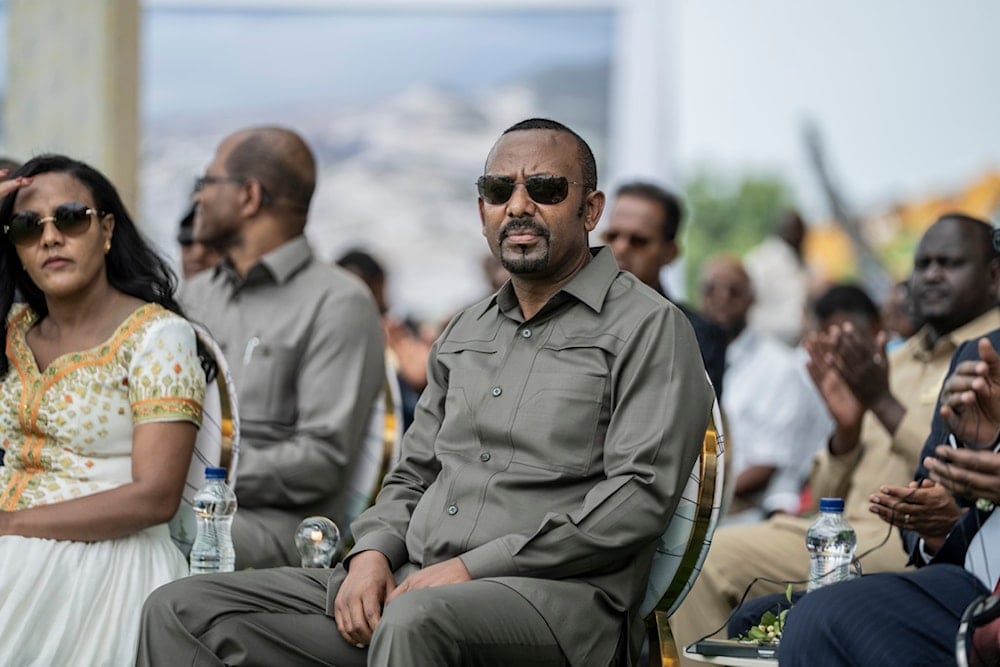Ethiopia seeks int'l mediation in Red Sea access dispute with Eritrea
Ethiopian PM Abiy Ahmed insists the country's claim to the Red Sea is “irreversible".
-

Ethiopia's Prime Minister Abiy Ahmed looks on during the inauguration of the Grand Ethiopian Renaissance Dam in Benishangul-Gumuz, Ethiopia, Tuesday, September 9, 2025 (AP)
Ethiopian Prime Minister Abiy Ahmed on Tuesday called for international mediation with Eritrea over access to the Red Sea, reaffirming what he described as his country's “irreversible” claim to secure sea access amid rising tensions in the Horn of Africa.
Abiy, speaking to parliament in Addis Ababa, ruled out a military conflict but stressed that Ethiopia’s demand must be resolved diplomatically.
“Ethiopia’s request for access to the sea is irreversible. We have no intention of going to war with Eritrea. On the contrary, we are convinced that this issue can be resolved peacefully,” Abiy said.
Relations between Ethiopia and Eritrea have deteriorated in recent months, decades after Eritrea gained independence in 1993, leaving Ethiopia landlocked. The two nations fought a bloody border war from 1998 to 2000 that claimed tens of thousands of lives.
Though Abiy received the Nobel Peace Prize in 2019 for normalizing relations with Eritrean President Isaias Afwerki, ties have grown increasingly strained since the end of Ethiopia’s two-year civil war in Tigray, during which Eritrean troops fought alongside Ethiopian federal forces.
The African Union estimates that the conflict left more than 600,000 people dead.
Read more: Eritrea issues stark warning to Ethiopia over seaport ambitions
Talks with global powers, request for mediation
Abiy revealed that his government has engaged several international actors to mediate the dispute, including the United States, Russia, China, the African Union, and the European Union.
“We... have requested their mediation to find a lasting solution,” he told lawmakers.
Eritrea has not officially responded to the proposal, and Eritrean Information Minister Yemane Ghebremeskel declined to comment when contacted by AFP.
Wider context
At the heart of the Ethiopia-Eritrea sea access dispute lies Assab, a strategic Eritrean port city on the Red Sea. Eritrean officials have accused Ethiopia of seeking control over the city, a claim that has fueled regional unease.
In October, Ethiopia accused Eritrea of financing armed groups within its borders, an allegation that Asmara dismissed as “a false charade.”
Eritrea, a nation of roughly 3.5 million people, has moved diplomatically closer to Egypt, which also maintains tense relations with Ethiopia over Nile River dam projects and regional influence.
Read more: Israeli ambassador to Ethiopia booted from African Union meeting

 3 Min Read
3 Min Read








